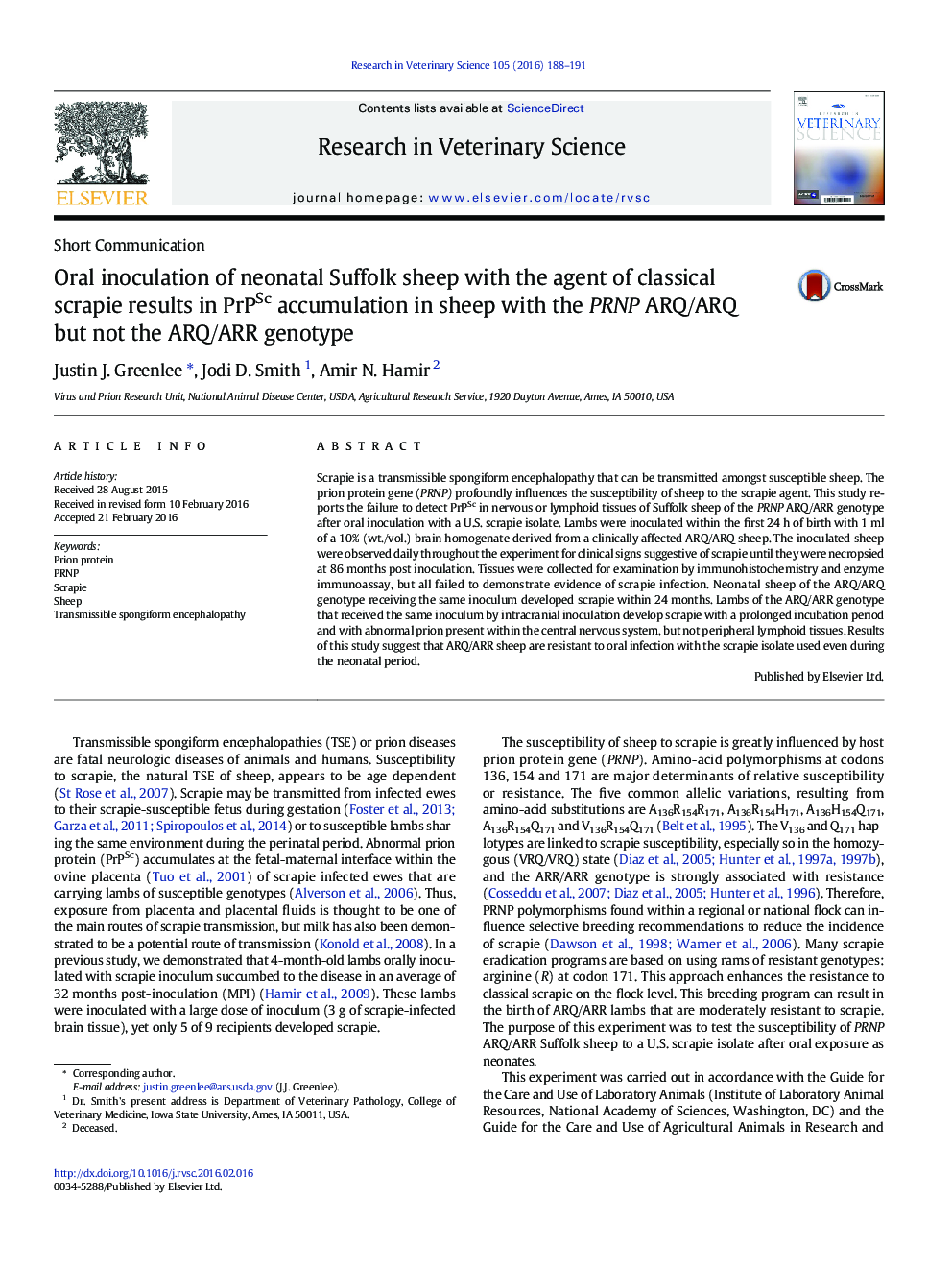| Article ID | Journal | Published Year | Pages | File Type |
|---|---|---|---|---|
| 5794389 | Research in Veterinary Science | 2016 | 4 Pages |
•Neonatal sheep were inoculated with the agent of scrapie in the first day of life.•Sheep of genotype ARQ/ARQ develop scrapie in 24 months.•Sheep of genotype ARQ/ARR do not develop scrapie after up to 86 months.•ARQ/ARR sheep do develop scrapie if same inoculum is given by intracranial (IC) route.•IC inoculation of ARQ/ARR sheep results in abnormal prion in the brain, but not lymphoid tissues.
Scrapie is a transmissible spongiform encephalopathy that can be transmitted amongst susceptible sheep. The prion protein gene (PRNP) profoundly influences the susceptibility of sheep to the scrapie agent. This study reports the failure to detect PrPSc in nervous or lymphoid tissues of Suffolk sheep of the PRNP ARQ/ARR genotype after oral inoculation with a U.S. scrapie isolate. Lambs were inoculated within the first 24 h of birth with 1 ml of a 10% (wt./vol.) brain homogenate derived from a clinically affected ARQ/ARQ sheep. The inoculated sheep were observed daily throughout the experiment for clinical signs suggestive of scrapie until they were necropsied at 86 months post inoculation. Tissues were collected for examination by immunohistochemistry and enzyme immunoassay, but all failed to demonstrate evidence of scrapie infection. Neonatal sheep of the ARQ/ARQ genotype receiving the same inoculum developed scrapie within 24 months. Lambs of the ARQ/ARR genotype that received the same inoculum by intracranial inoculation develop scrapie with a prolonged incubation period and with abnormal prion present within the central nervous system, but not peripheral lymphoid tissues. Results of this study suggest that ARQ/ARR sheep are resistant to oral infection with the scrapie isolate used even during the neonatal period.
